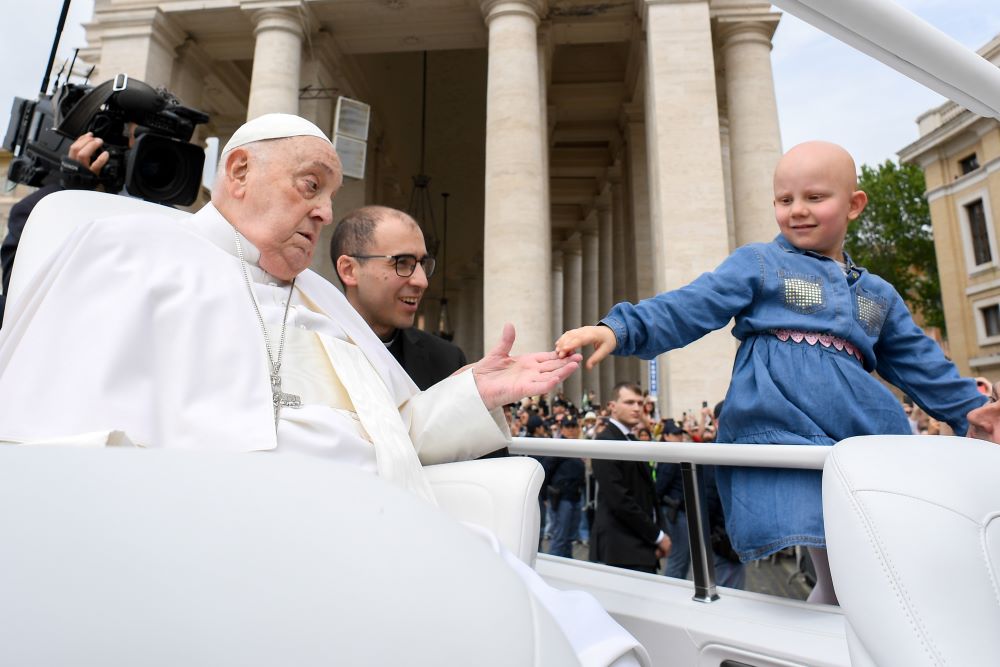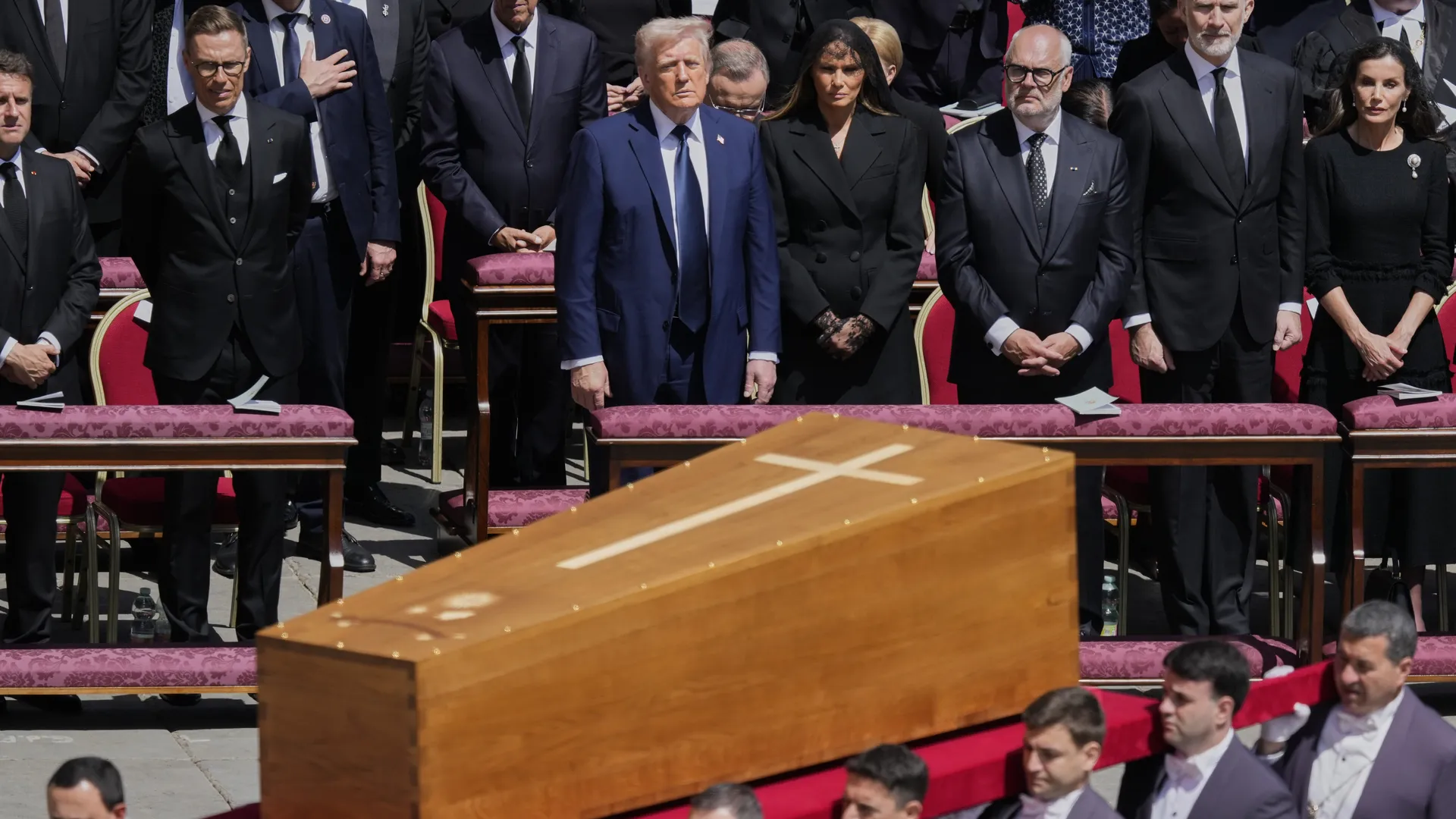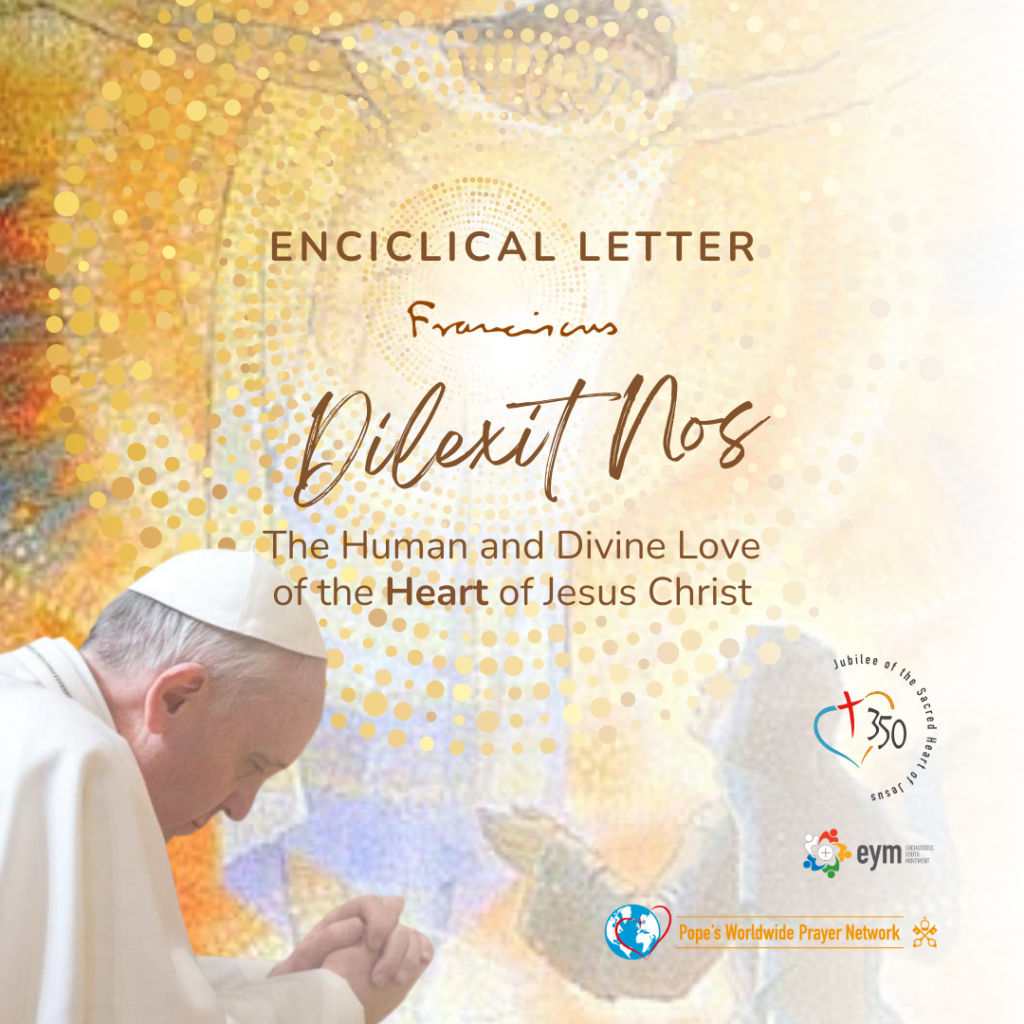by John Battle, Commission Chair
I watched the very frail Pope Francis on Easter Sunday on the BBC, moving through the crowds, still reaching out, greeting, touching and blessing in his farewell journey among the people. Now we have had his Requiem, may he now rest in peace with God.
While we await the Conclave and the announcement of his successor, what can we learn from his legacy?

Now is not a time to be seduced into simplistic binaries such as contrasting Pope Francis “the radical” with Pope Benedict the “administrative guard”. In terms of the long tradition of Catholic social teaching there is real integral continuity between Pope Benedict’s key social encyclicals, especially “Deus Caritas Est” “Spe Salvi” and “Caritas in Veritate” and those of Pope Francis that followed.
Both had far sighted insights into the challenges of our times; Benedict particularly into the new developing technologies and Francis into the emerging globalised church in a context of global capitalism, poverty and environmental crisis.
Significantly, as a result of his leadership, the Catholic Church leadership will continue in future to be globalised and more truly universal along with the new challenges that brings.
Moreover, Pope Francis realised that “power is now anonymised” in our world beyond the reach of personal and historical responsibilities.
I recall a Jewish professor of politics ringing me in 2014 to tell me that I must get hold of Pope Francis’s first book in English “The Church of Mercy” because it contains the deepest insights to what “leadership” should be about; namely
“walking with our people…sometimes in front, sometimes behind and sometimes in the middle: in front in order to guide the community; in the middle in order to encourage and support; and at the back in order to keep it united and so that no one lags too far behind, to keep them united” (p85).
Pope Francis as the cliché goes “walked the walk”. Words were matched by personal actions.
Cardinal Nichols has said that the legacy he leaves us “is one we must seek to carry forward and strengthen”

For our Leeds Diocese Justice and Peace Commission especially, Pope Francis has left us two key workbooks; his encyclical letters “Laudato Si” and “Fratelli Tutti”.
“Laudato Si” spells out the need now, as people on this precious planet, to hold together “care for the earth and care for the poor” with joined hands and in practical actions to foster our common home.
“Fratelli Tutti” urges us all as brothers and sisters, to value and develop “encountering others” each as a special person, to learn to become real listeners and be personally attentive as Pope Francis himself was, ensuring that challenging structures and causes never comes at the expense of personal face to face interaction.

His watchword for the Church in our times was to be a “church for the poor” and to lead by being a “field hospital” – mobile and active among the people, binding the wounds in practical service especially to the poor, the homeless, refugees and victims of violence and war.
He stressed that deep prayer, reflection and discernment and practical actions for justice and peace must be fused together. The environmental challenges also require “personal ecological conversion” – which is just another way of saying that we need to take seriously our responsibility for each person and for the material of the earth simultaneously.
And in his last letter and still overlooked “Dilexit Nos: On the Human and Divine Love of Jesus” he leaves us with an encyclical which, though at first sight seems to be in the tradition of nineteenth century spirituality, is presented explicitly
“to help us see that the teachings of the two social encyclicals Laudato Si and Fratelli Tutti is not unrelated to our encounter with the love of Jesus Christ. For it is by drinking of that same love that we become capable of forging the bonds of fraternity, recognising the dignity of each human being and of working together to care for our common home”.

He concludes:
“In a world in which everything is bought and sold, people’s sense of their worth appears increasingly to depend on what they can accumulate with the power of money. We are constantly being pushed to keep buying, consuming and distracting ourselves, held captive to a demeaning system that prevents us from looking beyond our immediate and petty needs. The love of Christ has no place in this perverse mechanism, yet only that love can set us free from a mad pursuit that no longer has room for gratuitous love Christ’s love can give a heart to our world and revive love wherever we think that the ability to love has been definitively lost. The Church also needs that love, lest the love of Christ be replaced with outdated structures and concerns, excessive attachment to our own ideas and opinions and fanaticism in any number of forms which end up taking the place of the gratuitous love of God that liberates, enlivens, brings joy to the heart and builds communities. The wounded side of Christ continues to pour forth that stream which is never exhausted, never passes away, but offers itself time and time again in all those who wish to love as he did. For his love alone can bring about a new humanity”

Pope Francis for now deserves these last words.
His legacy is a deep practical manifesto for prayer and action for each person, for the Church, and for our suffering yet bountiful world.
